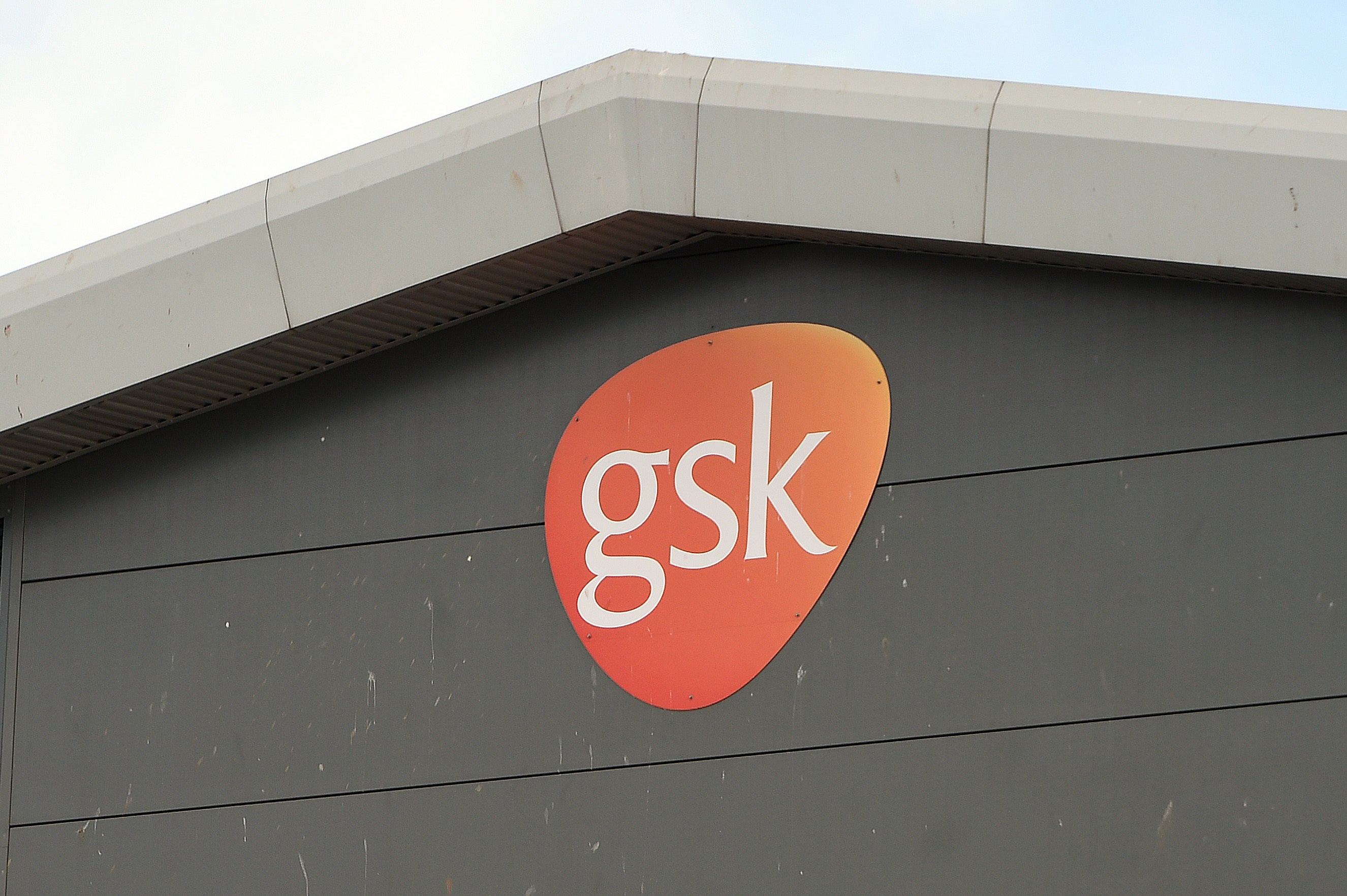GSK vows ‘step change’ in growth as it presses ahead with consumer arm spin-off
The drugs giant reported a 22% fall in pre-tax profits to £5.4 billion for 2021 – a 10% decline with currency movements stripped out.

Your support helps us to tell the story
From reproductive rights to climate change to Big Tech, The Independent is on the ground when the story is developing. Whether it's investigating the financials of Elon Musk's pro-Trump PAC or producing our latest documentary, 'The A Word', which shines a light on the American women fighting for reproductive rights, we know how important it is to parse out the facts from the messaging.
At such a critical moment in US history, we need reporters on the ground. Your donation allows us to keep sending journalists to speak to both sides of the story.
The Independent is trusted by Americans across the entire political spectrum. And unlike many other quality news outlets, we choose not to lock Americans out of our reporting and analysis with paywalls. We believe quality journalism should be available to everyone, paid for by those who can afford it.
Your support makes all the difference.GlaxoSmithKline has promised a “step change in growth” ahead of the planned move to spin off its consumer healthcare arm as it delivered better-than-expected earnings on strong Covid-related sales.
The drug giant’s chief executive Emma Walmsley – who has been under siege from activist investors such as Elliott Advisors – outlined ambitious growth targets for the “new GSK” pure biopharma business.
She hailed the “biggest change in GSK’s recent corporate history”, with the group on track to spin off its consumer healthcare arm, which includes brands such as Sensodyne toothpaste and Panadol pain relief, with a stock market listing in the middle of 2022.
It comes after GSK recently rejected a £50 billion approach for the consumer arm by Marmite maker Unilever with speculation now swirling that other suitors may be circling the division.
This is going to be a landmark year for GSK, with a step change in growth expected
She said the group had broad shareholder support for the plans to spin off, rather than look to sell the business, and remained tight-lipped on whether any other approaches had been received.
Following the demerger, the remaining GSK business is looking for underlying operating profits to rise by between 12% and 14% on a constant currency basis this year on sales 5% to 7% higher.
It follows figures that show GSK beat expectations in the final quarter of 2021, with pre-tax profits of £706 million, down 14%, or 8% higher on a constant currency basis.
Ms Walmsley said: “This is going to be a landmark year for GSK, with a step change in growth expected and multiple R&D (research and development) catalysts.”
The group said it sold £828 million of its Covid-19 antibody drug Sotrovimab, or Xevudy, in the three months to December 31 alone, which helped drive a 9% rise in sales to £9.5 billion in the quarter.
This saw it notch up £1.4 billion in Covid-19 related sales over the year as a whole, although the group is expecting the pandemic profit boost to ease from 2022 onwards due to lower margins on the anti-body drug.
This is set to reduce underlying earnings growth by between 5% and 7%.
The firm reported a 22% fall in pre-tax profits to £5.4 billion for 2021 – a 10% decline with currency movements stripped out.
Underlying operating profits stood at £8.8 billion – 1% lower, but 9% higher on a constant currency basis, as turnover rose 5% to £34.1 billion thanks to strong pandemic-related sales, higher drugs revenues and cost savings amid restructuring efforts.
GSK’s ambitious growth plans come after “many years of challenges”, according to Ms Walmsley, who has faced intense activist investor pressure over the past year.
But far from expecting 2022 to be a less challenging year, she said the “pressure to deliver for patients, for shareholders and up to 100,000 employees is always there”.
She declined to give an exact timing for the consumer business demerger, except to confirm it is set to happen in the summer.
Analysts had previously predicted that the spin-off, which is a joint venture with Pfizer, would be worth around £45 billion, but GSK is said to have been holding out for an improved bid of at least £60 billion from Unilever.
Ms Walmsley brushed aside any further interest in a sale, saying the group was focused on the “imminent” demerger of the consumer business and unlocking the potential for both that division and the new GSK.